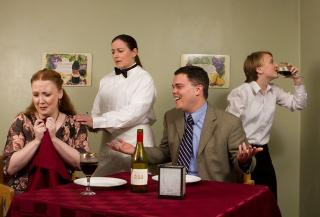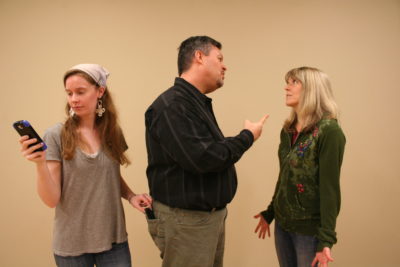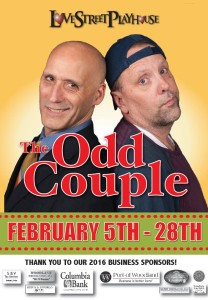
Why my plays are (almost) always comedies
Recently a friend observed that while my novels are all mystery/thriller/suspense stories, my plays are almost all comedies.
Why?
Here are six reasons I can think of.
Length
One obvious (to me) reason is length.
Plays can run anywhere from ten minutes to two hours, which means about 10 – 120 pages. That length is very conducive to setting up a punchline. Too much longer than that and people tire of the setup.
Mysteries require a lot more setup. Clues need to be dropped along the way, subtly, and suspense must be built. I find the length of a novel (about 300 pages for a paperback) much better suited to this task.
Complexity
Complexity goes hand in hand with length. The longer the story, the more complex you can make the plot.
In a play, the audience experiences every line live. They can’t turn back the page to check on something they’ve missed, as a reader can in a novel. The writer needs to be kind to the audience and not demand that they remember every little detail.
In a book, the reader can flip back (or click back, in an eBook) to an earlier chapter and find the clue they’ve missed.
Psychology
Reading is a cerebral exercise. Theatre can be, but reading almost always is.
No surprise, then, that readers of mysteries (and fiction, generally) love to dive into the minds of the novel’s main characters. They want to know what they’re thinking and how they’re feeling.
Novels permit the author to let the reader get inside the character’s head without forcing the character to reveal their motives, feelings, or plans to the other characters in a story. The reader gets an “insider’s perspective” that even the other characters in the play don’t.
Dialog
 A recent reviewer of one of my novels wrote that my scriptwriting experience is evident in the the dialog in my novels. It’s realistic, crisp, and funny, she wrote.
A recent reviewer of one of my novels wrote that my scriptwriting experience is evident in the the dialog in my novels. It’s realistic, crisp, and funny, she wrote.
Plays are all about dialog. If there’s information to be shared in a 90-minute script, it’s nearly always spoken.* Dialog drives the action and the story in the play.
For me, dialog comes out as humor – even in my mysteries. So when something is 90% dialog, comedy just sort of happens.
Action and Narrative
Novels permit narrative – i.e., the writer flat-out telling the reader what’s going on. In fact, it’s expected, to some extent. Readers don’t want to read 300 pages of dialog – they want action. That’s easier to do in a novel’s format.
Not so much in a play. While plays need action, dialog drives, and exposition quickly becomes boring. People sitting in theatre seats don’t want to be told what’s going on – they want to see it and hear it.
Action and narrative support the gritty, psychological content expected of mysteries very well.
History
I began my theatre experience doing comedy improv, then took some sketch workshops. All comedy.
My first few acting gigs were semi-improvised murder-mystery shows. Comedies.
My first contribution to a stage play was a page or so…to a comedy.
See a pattern?
I think my brain just associates comedies with stage plays.
See For Yourself
At the top of this page is a drop-down menu, containing, among other things, a drop-down for my novels, and another for my plays.
Browse through the novels page, then the page summarizing my plays. (You can click on the individual entries for more details if you want.) Compare for yourself. Do you think I’ve got it figured out? I’d appreciate any comments or feedback in the comments section below, or email me with your thoughts.


